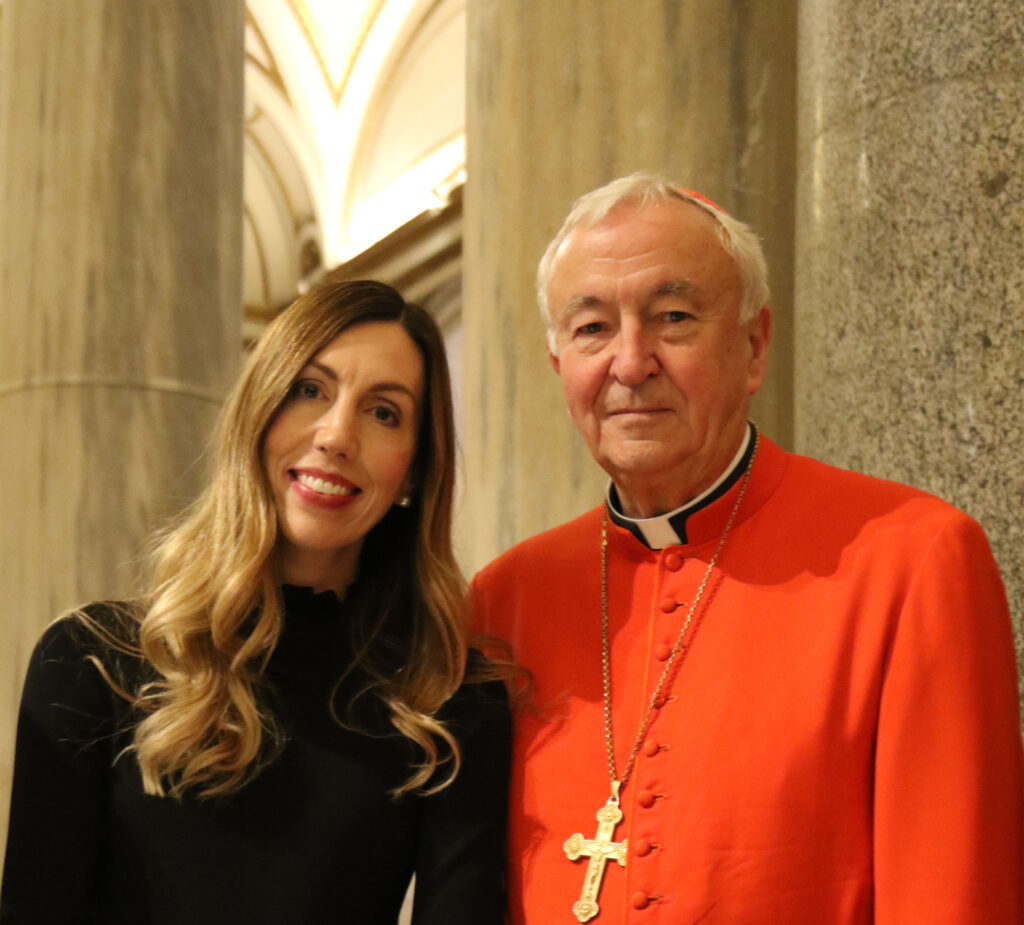
The American woman whose miraculous healing at the point of death led to the canonisation of St John Henry Newman has added her voice to calls for the Victorian cardinal to be declared a Doctor of the Church.
Melissa Villalobos said she supported the move by the U.S. bishops join the bishops of England and Wales in petitioning Pope Francis to confer the accolade on the saint, who was canonised by Holy Father in October 2019.
Mrs Villalobos, a lawyer from Chicago, said: “Newman‘s tireless defence of the faith continues today, not only as our intercessor in Heaven but through his numerous writings, where he gives us his insight into the mysteries of the kingdom.
“As a Doctor of the Church, we could more fully embrace the treasure trove of his labour of love as a light guiding us and strengthening our relationship with Christ.”
She added: “His writings are not only necessary in today’s age of difficulty and confusion, but they are beyond timeless; his words become even more relevant with the passage of time.”
Mrs Villalobos was bleeding to death on her bathroom floor more than a decade ago when she uttered a prayer to St John Henry, asking him to make it stopped.
The effusion ceased instantly and her home was three times filled with a rich smell of roses, she told investigators later.
The inexplicably healed from the potentially fatal haemorrhage during a pregnancy saved not only her life but also that of Gemma, her unborn child. The mother-of-seven attended the canonisation with her daughter and the rest of her family.
Her remarks came after a number of American bishops, including Bishop Robert Barron of Winona-Rochester, Minnesota, spoke out last week in support of efforts to make St John Henry a doctor of the Church.
The U.S. bishops’ Committee on Doctrine asked during their annual autumn meeting in Baltimore, if they wished to support a petition brought by the Bishops’ Conference of England and Wales to recognise the teaching of St John Henry as being of universal significance.
According to the Catholic News Agency, tall but two of the bishops voted to send a letter to Pope Francis expressing their support for the proposal.
Bishop Barron said: “If that happens, that Newman is named a doctor, we should really take advantage of that, study his writings deeply. I think it might help to heal some of the divisions in our Church.”
Catholic scholars have often proposed that St John Henry could be given the title of “Doctor of Conscience”.
On the eve of his canonisation, Archbishop Anthony Fisher of Sydney, for instance, said the saint’s insights into the function and meaning of conscience “could not be more timely” given widespread moral confusion in the western world.
He said Newman’s theology of conscience offered an antidote to the moral relativism that was convulsing many societies.
The power of Newman’s teachings, he said, could be seen in the witness of the White Rose, an anti-Nazi movement in wartime Germany, which found the courage to defy Adolf Hitler partly after studying St John Henry’s writings on conscience.
Sophie Scholl, the most famous member of the White Rose, was just 21 years old when she beheaded in Stadelheim Prison, Munich, in February 1943 after she and her brother, Hans, flooded the famous Lichthof (atrium) of Munich University with leaflets inciting students to oppose Nazism.
Archbishop Fisher said the episode served as an example of how Newman’s teachings did not only have an impact within the church but were also able to “effect civilised ends”.
There are just 37 doctors of the Church and they include such luminaries as Ss Gregory the Great, Augustine, Jerome, Teresa of Avila, Thomas Aquinas, Bernard of Clairvaux, John of the Cross and Catherine of Sienna.
